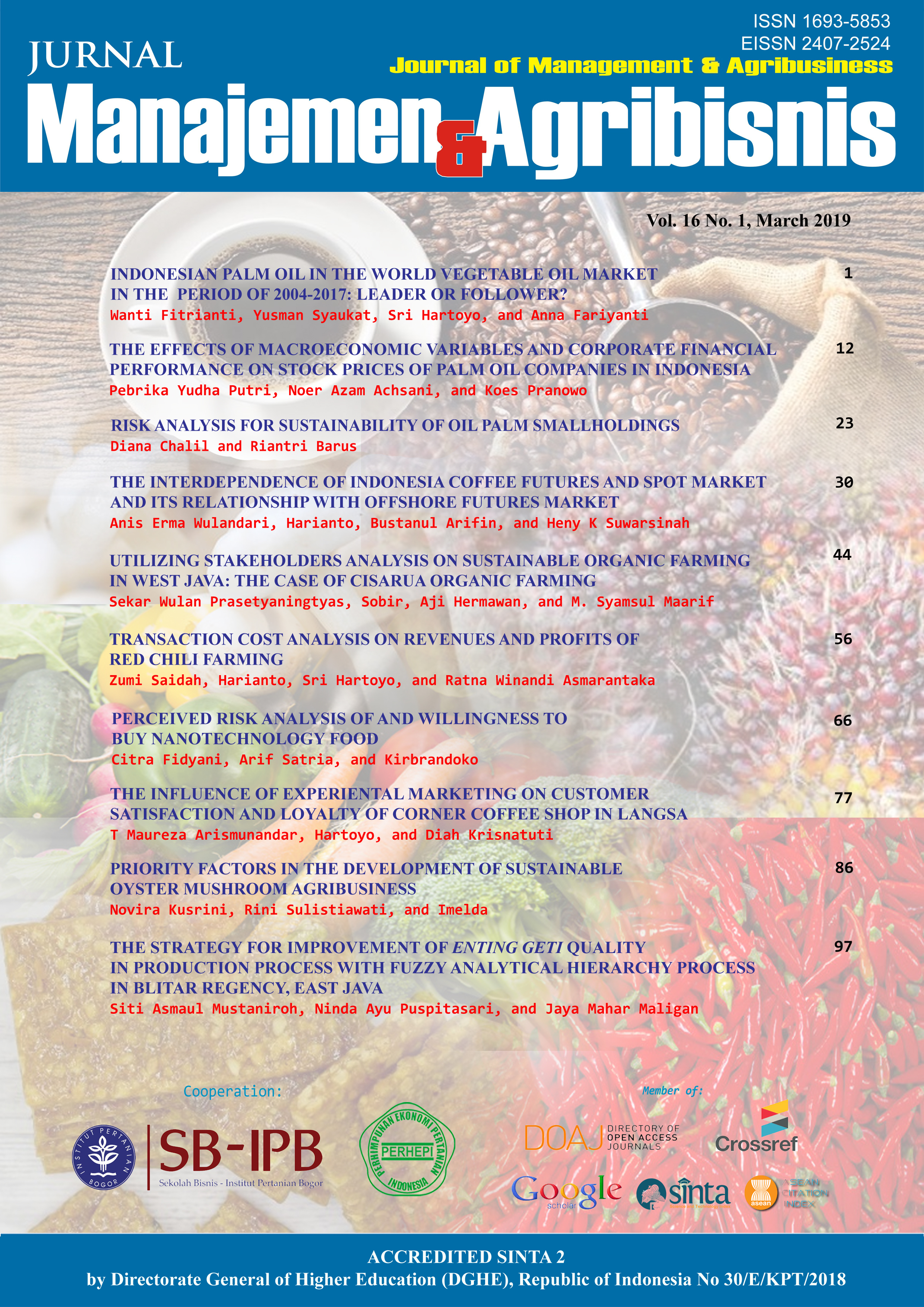The Strategy for Improvement of "Enting Geti" Quality in Production Process with Fuzzy Analytical Hierarchy Process in Blitar Regency, East Java
Abstract
SMEs of peanut snack “Enting geti” in Blitar Regency is divided into several clusters based on performance and product quality. The center of Enting geti SMEs is in Rejowinangun village, Blitar Regency, East Java. The main problem in SMEs is the diversity of production process between SMEs and unstandardized formulas such as inconsistencies in quality. This study aimed at determining the best formula of Enting geti based on the Indonesian National Standard (SNI) and determining the quality improvement strategy of production process. This research used 2 methods of the consumer acceptance test (organoleptic test) analyzed with the Effectiveness Index and laboratory test with Multiple Attribute. The improved production process was on caramelization process and reduction of wijen composition. The treatments used were the cooking temperature of 75±2ºC and 85±2ºC. The results based on acceptance test and laboratory test showed that the second treatment (temperature 85±2ºC with 10% wijen reduction) was the best treatment. The priority of determining the strategy with Fuzzy Analytical Hierarchy Process found that the best strategy in the production process variable with an alternative strategy is to establish a partnership that can be done by building cooperation with several fixed suppliers and by improving the flow of information.
Authors
MustanirohS. A., MaliganJ. M., & PuspitasariN. A. (2019). The Strategy for Improvement of "Enting Geti" Quality in Production Process with Fuzzy Analytical Hierarchy Process in Blitar Regency, East Java. Jurnal Manajemen Dan Agribisnis, 16(1), 97. https://doi.org/10.17358/jma.16.1.97
Authors who publish with this journal agree to the following terms:
- Authors retain copyright and grant the journal right of first publication with the work simultaneously licensed under a Creative Commons Attribution License that allows others to share the work with an acknowledgement of the work's authorship and initial publication in this journal.
- Authors are able to enter into separate, additional contractual arrangements for the non-exclusive distribution of the journal's published version of the work (e.g., post it to an institutional repository or publish it in a book), with an acknowledgement of its initial publication in this journal.
- Authors are permitted and encouraged to post their work online (e.g., in institutional repositories or on their website) prior to and during the submission process, as it can lead to productive exchanges, as well as earlier and greater citation of published work (See The Effect of Open Access).

